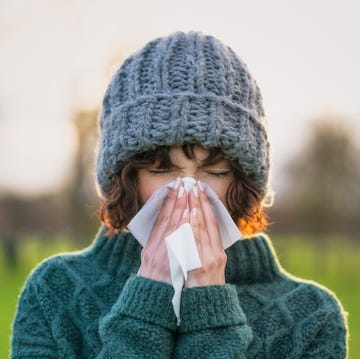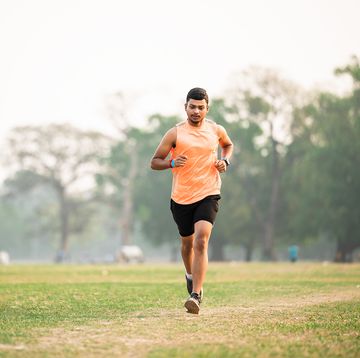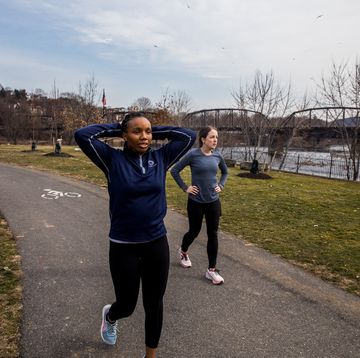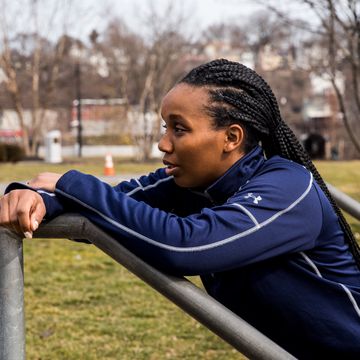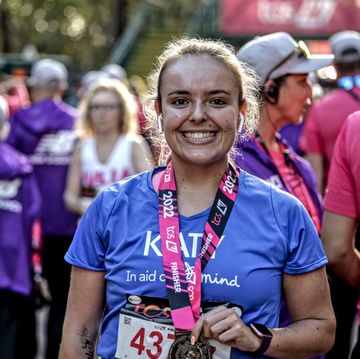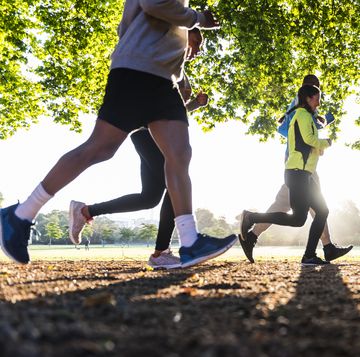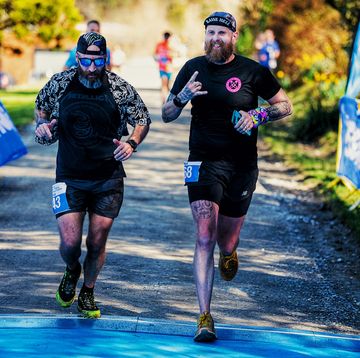Recent research suggests that just one night of bad rest can have a negative impact on your running performance. Meanwhile, chronically denying yourself an hour of sleep each night has cumulative negative effects on your running and your health. ‘Sleep is as important as your workouts,’ says running coach Joe English. ‘When you start robbing from that pot to get everything else done, the quality of your training – and of everything else – starts to fall apart.’
Running has given me confidence and self-worth
Night after night of restricted (or interrupted) sleep sets off a cascade of hormonal shifts with harmful biological effects. Within a week or two, you’ll have higher levels of the inflammatory marker C-reactive protein and the stress hormone cortisol, keeping your heartrate higher and your nervous system on constant alert. Human growth hormone, which repairs muscle and bones, is secreted by your pituitary gland during deep sleep, says Shelby Harris, director of the Behavioral Sleep Medicine Programme at Montefiore Medical Center in New York. The less sleep you get, the lower your levels. Your muscles’ ability to store glycogen for energy also declines, meaning you risk running out of gas no matter how much you carb-load, says Harris. Plus, there’s some research that indicates your injury risk goes up if you don’t get enough shut-eye.
So, how can you help ensure you get those all-important forty winks? Fall – and stay – fast asleep with these expert tips.
1. Be consistent
Stick to the same sleep/wake schedule. And create a relaxing pre-sleep ritual, such as doing light yoga or listening to calming music. Adopting a bedtime routine will prompt your body to fall asleep more easily, says sleep researcher Cheri Mah.
2. Hibernate
‘Make your room like a cave – dark, quiet and cool,’ says Mah. Invest in blackout curtains and a white noise machine or fan, and block glowing lights from alarm clocks or phones.
3. Power down
Turn off TVs, laptops and tablets an hour before bedtime – their light blocks the production of the sleep hormone melatonin, says Shelby Harris, director of Montefiore’s Behavioral Sleep Medicine Program in New York.
4. Drink less
To avoid middle-of-the-night loo stumbles, cut back on water consumption three hours before bedtime, Harris says. Beer or wine may help you conk out more quickly, but alcohol disrupts the later, deeper stages of sleep.
5. Cut off caffeine
It can linger in your system for more than six hours. For best results, switch to decaf (or at least green tea, which contains only about 50 milligrams of caffeine) after 5pm, says sleep researcher Dr Christopher Drake.
6. Is it wise to run with a cold
Anti-inflammatories such as ibuprofen keep some people up at night. Avoid taking them before bed or try a supplement such as fish oil or glucosamine chondroitin instead, says Dr Oexman.
7. Have patience
If you have insomnia, a consistent running routine can improve your symptoms, but not immediately. Exercise can take up to four months to improve sleep, according to a study published in the Journal of Clinical Sleep Medicine.


